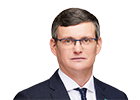Ida-Virumaa eriarstid ja haiglate ületöö koefitsiendid
Istung: XV Riigikogu, III istungjärk, infotund
Kuupäev: 2024-06-05 15:50
Osalevad Poliitikud:
Sõnavõtte kokku: 10
Koosseis: 15
Päevakorra kestus: 10m
AI kokkuvõtted: 10/10 Sõnavõtud (100.0%)
Analysis: Structured Analysis
Poliitikute Kõneaeg
Poliitikud
Analüüs
Kokkuvõte
Neljas päevakorrapunkt läks Riigikogu ette tervishoiuteemadel. Küsimus puudutas Ida-Virumaa eriarstide puudust ning haiglate ületööt koefitsiente, mis on pikas plaanis koordineeritud Tervisekassa ja haiglate vahel. Koroonakriis jättis eriarstide kättesaadavuse tihti piiratud ning nüüd, pealtnäha kahe aasta jooksul jõustunud taastumise taustal, on arsti juurde pöördumiste arv märgatavalt kasvanud. Samal ajal on haiglavõrk pidanud jätkama ravi vastavalt lepingutingimustele, mis sisaldavad koefitsiente 0,7 ambulatoorse töö ja 0,3 statsionaarse ravi korral ning, kui maht ületatakse, katab muutuvkulud peamiselt tööjõu tasu, kuid püsikulud jäävad lepingu raamidesse. Esile on toodud vajadus leida lühi- ja keskmise tähtajaga finantseerimine 30–50 miljoni euro võrra, et tagada raviteenuste jätkusuutlikkus ning vältida detsembrikuul sundpuhkusi. Lisaks tõdeti vananeva rahvastiku mõju ning piirkondade vahelisest erinevast nõudluse kasvust tulenev vajadus teenuste mahu suurendamiseks.
Tehtud otsused 1
Otsuseid ei tehtud.
Aktiivseimkõneleja
Kõige aktiivsem speaker oli Aleksei Jevgrafov, Riigikogu liige; poliitiline suund: other (tekstist ei selgitata tema parteilist joont).
Esimees Lauri Hussar
AI kokkuvõte
Riigikogu esitab terviseministrile Riina Sikkutile neljanda küsimuse, küsija on Aleksei Jevgrafov ja teema on Ida-Virumaa eriarstid ning haiglate ületöö koefitsiendid.

Aleksei Jevgrafov
Profiileerimine Fraktsiooni mittekuuluvad Riigikogu liikmedAI kokkuvõte
Ettekanne tõstatas koroonakriisi järel tekkinud eriarstiabi piirangute ja patsientide arvu kasvu mõju rahastusele, märkides, et käesoleva aasta esimeste kuude jooksul on haiglavõrgu ravikulud ületanud lepingu piirmäära ning on vaja 30–50 miljonit eurot juurde, muidu võib detsembris tulla sundpuhkus, ning küsis, kas eelarve võttis arvesse krooniliste haigete suurenenud pöördumise ning kuidas ja millise koefitsiendiga on planeeritud ületöö hüvitused.
Terviseminister Riina Sikkut
AI kokkuvõte
Riina Sikkut selgitas, et haiglad sõlmisid Tervisekassaga lepingud, mis piiravad töömahtu erialade lõikes ja ületusmahu eest tasustatakse ambulatoorset tööd koefitsiendiga 0,7 ning statsionaarset ravi koefitsiendiga 0,3, ning kuigi nõudlus kasvab ning vananeva rahvastiku tõttu kulud suurenevad, ei suuda 13% sotsiaalmaksest tulevikus kõiki vajadusi rahastada ja sellest tulenevalt tekivad järjekorrad, kuid tänavu suudetakse vajadusest rahuldada umbes 94%, mis nõuab edasisi pingutusi teenuste mahu kasvatamisel ja eelarve aruteludel.
Esimees Lauri Hussar
AI kokkuvõte
Esimees Lauri Hussar andis ministrile sõna, tänas teda ja palus Aleksei Jevgrafovil esitada täpsustava küsimuse.

Aleksei Jevgrafov
Profiileerimine Fraktsiooni mittekuuluvad Riigikogu liikmedAI kokkuvõte
Aleksei Jevgrafov tõstatab Ida-Virumaa eriarstide puuduse teema ja küsib, kas sinna võiks kehtestada eraldi residentide suunamis-kvooti selle vähendamiseks.
Terviseminister Riina Sikkut
AI kokkuvõte
Riina Sikkut lausus, et COVID‑i ajal tehtud lisarahastus hoiab tänavu Tervisekassa eelarvet tasakaalus, kuid järgmisel aastal tuleb suur puudujääk, mistõttu tuleb teenuseid säilitada ja mahtusid suurendada, eriti Ida-Virumaa haiglates, ning selleks plaanitakse noorte arstide ja õdede kaasamiseks kasutada lähtetoetusi ning residentuurivõimalusi laiendada, et katta kõik maakonnahaiglad, kuigi konkreetseid suunamisi või reserveeringuid plaanis ei ole ja esimesed numbrid selguvad juuli keskpaigas.
Esimees Lauri Hussar
AI kokkuvõte
Esimees tänab ja palub esitada lisaküsimuse, suunatud Aleksandr Tšaplõginile.

Aleksandr Tšaplõgin
Profiileerimine Fraktsiooni mittekuuluvad Riigikogu liikmedAI kokkuvõte
Aleksandr Tšaplõgin tänab istungi juhatajat ja ministrit, märgib, et tema küsimus ei puuduta Ida-Virumaad, ning küsib Tallinna Haigla projekti praegust seisu.
Terviseminister Riina Sikkut
AI kokkuvõte
Riina Sikkut ütles, et Tallinna haigla ehitamiseks on loodud Tallinna Haigla sihtasutus ja ettevalmistused jätkuvad, sealhulgas esmakordse suure uue haiglahoone projekti jaoks, mille esialgne projekteerimishange ebaõnnestus ning minnakse nüüd teisele katsele, ning kuigi eksperte, sealhulgas välismaisi, on keeruline leida, on plaan luua ühine haiglaorganisatsioon Ida-Tallinna ja Lääne-Tallinna Keskhaigla liitmise teel ning edasi liikuda rahastamise ja ehituse otsustega, kui eelarve ja poliitiline konsensus on olemas.
Esimees Lauri Hussar
AI kokkuvõte
Esimees Hussar teatas, et neljas küsimus on lõpetatud ning järgmiseks pidi tulema viies küsimus hooldekodureformi teemal Signe Riisalo jaoks, kuid Andres Metsoja puudumise tõttu jääb see küsimus avamata.